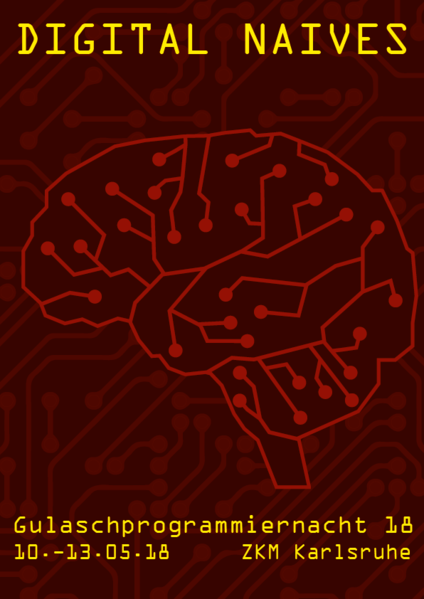
Similar to last year I managed to attend the Gulasch Programmier-Nacht (GPN) in Karlsruhe, Germany. Not only did I attend, I also managed to squeeze in a talk about PrivacyScore. We got the prime time slot on the opening day along with all the other relevant talks, including the Eurovision Song Contest, so we were not overly surprised that the audience had a hard time deciding where to go and eventually decided to attend talks which were not recorded. Our talk was recorded and is available here.
Given the tough selection of the audience by the other talks, we had the people who were really interested. And that showed during the official Q&A as well as in the hallway track. We exchanged contacts with other interested parties and got a few excellent comments on the project.

Another excellent part of this year’s GPN was the exhibition in the museum. As GPN takes places in a joint building belonging to the local media university as well as the superb art and media museum, the proximity to the artsy things allows for an interesting combination. This year, the open codes exhibition was not hosted in the ZKM, but GPN also took place in that exhibition. A fantastic setup. Especially with the GPN’s motto being “digital naïves”. One of the exhibition’s pieces is an assembly robot’s hand doing nothing else but writing a manifesto. Much like a disciplinary action for a school child. Except that the robot doesn’t care so much. Yet, it’s usefulness only expands to writing these manifestos. And the robot doesn’t learn anything from it. I like this piece, because it makes me think about the actions we take hoping that they have a desired effect on something or someone but we actually don’t know whether this is indeed the case.

I also like the Critical Engineering Manifesto being exhibited. I like to think about how the people who actual implement cetain technologies can be held responsible for the effects of it on individuals or the society. Especially with more and more “IoT” deployments where the “S” represents their security. It’s easy to blame Facebook for “leaking” user profiles although it’s in their Terms of Services, but it’s harder to shift the blame for the smart milk sensor in your fridge invading my privacy by reporting how much I consume. We will have interesting times ahead of us.

An exhibit pointing out the beauty of algorithms and computation is a board that renders a Julia Set. That’s wouldn’t be so impressive in itself, but you can watch the machine actually compute the values. The exhibit has a user controllable speed regulator and an insight into the CPU as well as the higher level code. I think it’s just an ingenious idea to enable the user to go full speed and see the captivating movements of the beautiful Julia set while also allowing the go super slow to investigate how this beauty is composed of relatively simple operations. Also, the slow execution itself is relatively boring. We get to see that we have to go very fast in order to be entertained. So fast that we cannot really comprehend what is going on.

I whole heartedly recommend visiting this exhibition. And the GPN, of course, too. It’s a nice chaotic event with a particular flair. It’s getting more and more crowded though, so better while the feeling lasts and doesn’t get drowned by all the tourists.
